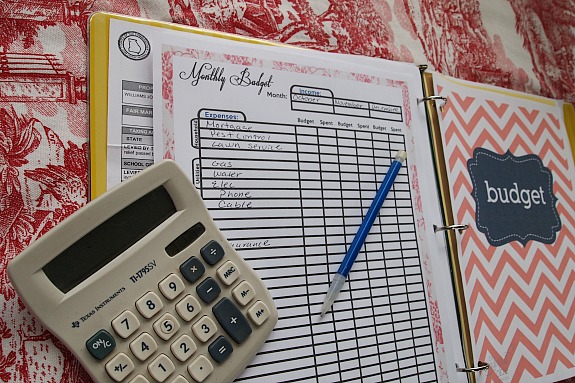Posted on: 17th December 2014 in Financial Planning
The percentage of people who regularly plan and record their spending is surprisingly low. Furthermore, many of those who do take a conscious effort to manage their finances don’t do it as effectively as they could. The following are 14 common misconceptions about budgeting which may hold you back. I don’t need a budget, because… 1. … my salary is high No amount of money is too high for a human being to waste. The countless bankrupt former millionaires are evidence. In fact, the more money you have, the more attention its management deserves. 2. … I have no money If you are on the opposite end of the spectrum and you are barely able to pay the essentials, actively taking control is much better than ignoring problems. A budget will help you identify opportunities to save or earn more. 3. … I always spend less than I earn Not getting into debt is good to start with, but in the long run, it’s not enough. Don’t forget to regularly save a certain portion (at least 10%) of your income. A budget helps make sure that you always put money aside for emergencies and retirement. I can’t do a budget, because…
4. … I’ve always been bad at maths
The less comfortable you are with numbers, the more you need a budget because the more likely you are to make poor financial decisions. Luckily, there is plenty of free, simple and user-friendly software that will do the mathematics for you.
5. … I don’t have time
The few minutes that you spend on your budget will probably have a higher financial impact than anything else you do, including your job. It might take more time in the beginning but becomes very quick once you have developed a routine.
I can’t do a budget, because…
4. … I’ve always been bad at maths
The less comfortable you are with numbers, the more you need a budget because the more likely you are to make poor financial decisions. Luckily, there is plenty of free, simple and user-friendly software that will do the mathematics for you.
5. … I don’t have time
The few minutes that you spend on your budget will probably have a higher financial impact than anything else you do, including your job. It might take more time in the beginning but becomes very quick once you have developed a routine.
 I don’t want to do a budget, because…
6. … I don’t like money
Yes, there are other things more important than money. However, unless you live completely isolated from civilization, you need money for survival. A budget is just one of those things to do even when we don’t like them.
7. … I don’t want to look like I am obsessed with money
If you are worrying about what other people will think about you, don’t. Merely being in control of your finances does not mean that you are greedy, bad or weird (unless you spend 10 hours every weekend going through your accounts).
8. … it is boring
Unfortunately, the things that are boring now are often exactly the things that will make your life less boring and more fun in the future. You won’t get into debt, you will be able to afford holidays and perhaps even retire early. Smart people don’t neglect things just because they are boring.
9. … I won’t be able to buy what I want
It’s exactly the opposite. When you plan your spending, you avoid making impulsive and emotional decisions. As a result, you will have more money left for the things that really matter.
I don’t want to do a budget, because…
6. … I don’t like money
Yes, there are other things more important than money. However, unless you live completely isolated from civilization, you need money for survival. A budget is just one of those things to do even when we don’t like them.
7. … I don’t want to look like I am obsessed with money
If you are worrying about what other people will think about you, don’t. Merely being in control of your finances does not mean that you are greedy, bad or weird (unless you spend 10 hours every weekend going through your accounts).
8. … it is boring
Unfortunately, the things that are boring now are often exactly the things that will make your life less boring and more fun in the future. You won’t get into debt, you will be able to afford holidays and perhaps even retire early. Smart people don’t neglect things just because they are boring.
9. … I won’t be able to buy what I want
It’s exactly the opposite. When you plan your spending, you avoid making impulsive and emotional decisions. As a result, you will have more money left for the things that really matter.
 The most common mistakes with budgeting
10. Records without planning
While record-keeping is good for knowing your spending habits and making better decisions, a proper budget should look into the future, based on your past experiences and records.
11. Planning without records
If you make a budget for every month, but then don’t record the actual spending, you lack the feedback that is necessary for keeping your future budgets realistic.
12. Overcomplicating it
It’s easy to get overwhelmed when you’re trying to micro-manage everything. Finding a balance comes with experience. If you are just starting out, focus on the obvious big categories like housing, groceries, car, discretionary spending and savings. You can add subcategories and other details gradually.
13. Not having a reserve for emergencies
Unexpected things happen. Your computer breaks down or your teeth suddenly hurt. It is wise to always reserve a portion of your budget for “emergencies”.
14. Not involving your partner
If you live with your spouse, one of you may be more fit (have more time or skills) to manage money for your shared household. This is absolutely fine, but make sure that the other person stays updated and has a say in the big decisions.
The most common mistakes with budgeting
10. Records without planning
While record-keeping is good for knowing your spending habits and making better decisions, a proper budget should look into the future, based on your past experiences and records.
11. Planning without records
If you make a budget for every month, but then don’t record the actual spending, you lack the feedback that is necessary for keeping your future budgets realistic.
12. Overcomplicating it
It’s easy to get overwhelmed when you’re trying to micro-manage everything. Finding a balance comes with experience. If you are just starting out, focus on the obvious big categories like housing, groceries, car, discretionary spending and savings. You can add subcategories and other details gradually.
13. Not having a reserve for emergencies
Unexpected things happen. Your computer breaks down or your teeth suddenly hurt. It is wise to always reserve a portion of your budget for “emergencies”.
14. Not involving your partner
If you live with your spouse, one of you may be more fit (have more time or skills) to manage money for your shared household. This is absolutely fine, but make sure that the other person stays updated and has a say in the big decisions. We have 18 offices across the globe and we manage over $2billion for our 20,000+ clients
Get started
Digital Assets: From Fringe to Framework A Responsible View for Internationally Mobile Investors Executive Summary Digital assets have moved from the fringes of finance into mainstream discussion. The arrival of...
Read more
Across the global expatriate market, one product category is showing unprecedented momentum in 2025: Indexed Universal Life (IUL). As client expectations move toward solutions that combine long-term protection, tax-efficient wealth...
Read more
Chancellor Rachel Reeves delivered her second Autumn Budget in dramatic circumstances, after the Office for Budget Responsibility (OBR) accidentally released its full economic outlook online 45 minutes before her speech....
Read more
In today’s world, much of our lives are lived online. From email accounts and social media profiles to digital wallets and online businesses, we’re building a digital legacy—often without realising...
Read more